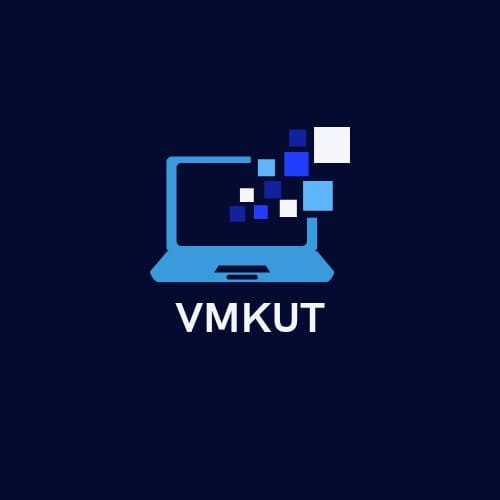Open VMKUT Content Creation Institutes (OCCIs) play a vital role in promoting knowledge sharing, collaboration, and creativity through open educational resources (OER). As educational institutions, they focus on producing and disseminating content that is freely accessible and can be modified and shared. This document outlines the key criteria for establishing and evaluating OCCIs.
- Mission and Vision of VMKUT Content Creation institute
Clarity of Purpose: OCCIs should have a clear mission that emphasizes the importance of open access to educational resources. This mission should articulate how the institute aims to foster creativity, collaboration, and community engagement.
Alignment with Open Education Principles: The vision must align with the broader goals of open education, including equitable access to learning, empowering learners, and supporting innovation.
2.VMKUT Curriculum Design
Open Educational Resources (OER): The curriculum should prioritize the creation and use of OER, ensuring that materials are not only freely available but also adaptable for various educational contexts.
Interdisciplinary Approach: An effective curriculum should promote interdisciplinary collaboration, allowing diverse perspectives and expertise to contribute to content creation.
Inclusivity and Accessibility: Materials must be designed with inclusivity in mind, ensuring that all learners, regardless of background or ability, can access and engage with the content.
3. VMKUT Standard Faculty and Staff

Expertise in Open Education: Faculty should have a strong understanding of open educational practices and be advocates for OER. Their expertise is critical for the quality and relevance of the content created.
Professional Development: The institute should provide ongoing training for faculty and staff in the latest trends in open content creation, instructional design, and technology integration.
Collaboration Skills: Faculty should be encouraged to collaborate with each other and with external partners, fostering a culture of teamwork and shared knowledge
4.Technological Infrastructure
User-Friendly Platforms:* The institute should provide intuitive digital platforms for content creation, sharing, and collaboration. These platforms should support various media types, including text, video, and interactive content.
Open Licensing Systems: Clear guidelines for licensing (e.g., Creative Commons) should be established to ensure that all content created is freely usable, modifiable, and shareable.

Support for Emerging Technologies:* The institute should stay updated with technological advancements that can enhance content creation, such as AI tools, virtual reality, and multimedia resources.
5. Community Engagement
Partnerships with Other Institutions: Collaborations with other educational institutions, organizations, and industry stakeholders can enhance the institute’s reach and impact.
Local and Global Involvement: OCCIs should engage with both local communities and global networks to promote open content, ensuring that diverse voices and perspectives are represented.
Feedback Mechanisms: Establishing channels for feedback from learners and the community helps refine content and address emerging needs and challenges.
6. Research and Innovation
Support for Research Initiatives: OCCIs should encourage research in open education, including the effectiveness of OER and innovative teaching practices.
Pilot Programs and Experimentation: The institute should promote pilot programs that allow for experimentation with new approaches to content creation and delivery.
Dissemination of Findings: Research outcomes should be shared widely to contribute to the broader open education community, promoting best practices and lessons learned.
7. Evaluation and Assessment
Quality Assurance Processes: OCCIs need robust mechanisms for evaluating the quality of created content, ensuring that it meets educational standards and learner needs.
Learner-Centric Assessment: Assessments should focus on learner outcomes and experiences, using both qualitative and quantitative measures to gauge effectiveness.
Continuous Improvement: The institute should commit to regularly revisiting and revising its programs and practices based on evaluation outcomes and feedback.
8. Sustainability and Funding
Diverse Funding Sources: OCCIs should explore various funding avenues, including grants, partnerships, and donations, to ensure financial sustainability.
Long-Term Planning: A strategic plan should be in place that addresses future growth, resource allocation, and community impact, ensuring the institute can adapt to changing educational landscapes.
Transparency in Operations: Clear communication about funding sources, financial practices, and resource allocation helps build trust within the community and encourages further support.
9. Global Outreach and Impact
International Collaboration:* OCCIs should seek opportunities for collaboration with global partners to share knowledge, resources, and best practices.
Impact Assessment: The institute should assess its impact on learners, communities, and the broader educational landscape, using metrics that reflect its mission and goals.
Promotion of Global Citizenship:* Through its content and outreach, the institute should promote values of global citizenship, social responsibility, and cultural awareness.
10. Ethical Considerations
Commitment to Ethical Practices: OCCIs should adhere to ethical standards in content creation, ensuring respect for intellectual property and cultural sensitivity.
Inclusivity in Content Creation: The institute must actively work to include underrepresented voices and perspectives in its content, promoting diversity and equity.
Protection of Privacy: Ensuring the privacy and security of learners and contributors is crucial, particularly in online environments.
Conclusion
The establishment of Open VMKUT Content Creation Institutes requires careful consideration of multiple criteria to ensure they fulfill their mission of promoting open access to educational resources. By focusing on mission clarity, curriculum design, community engagement, and sustainability, OCCIs can effectively contribute to the broader goals of open education. As they evolve, these institutes must remain adaptable, continuously assessing their impact and refining their practices to meet the needs of learners and communities worldwide.

Leave a Reply